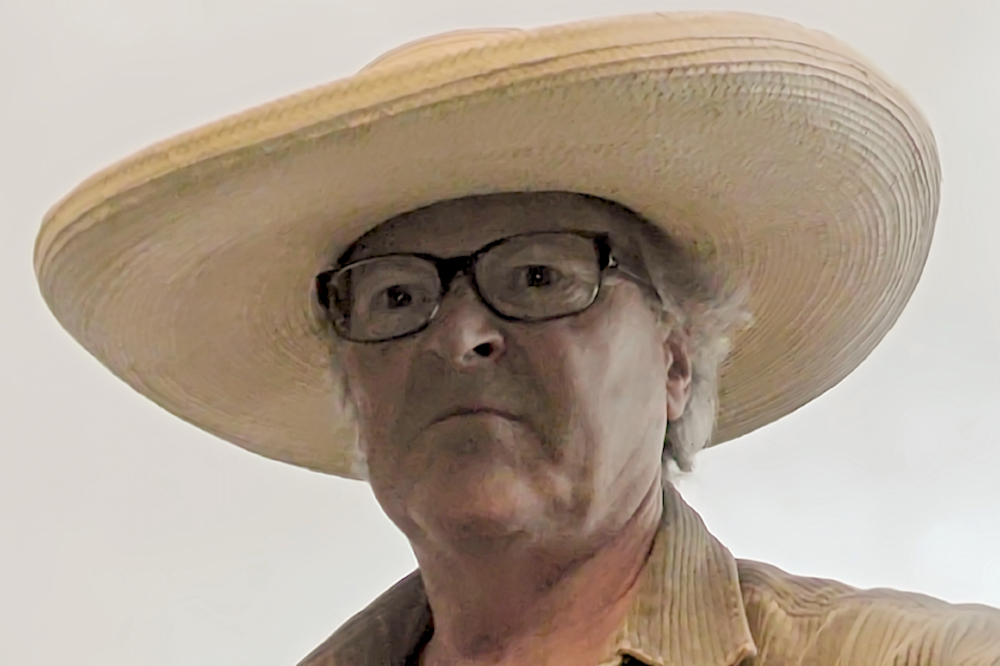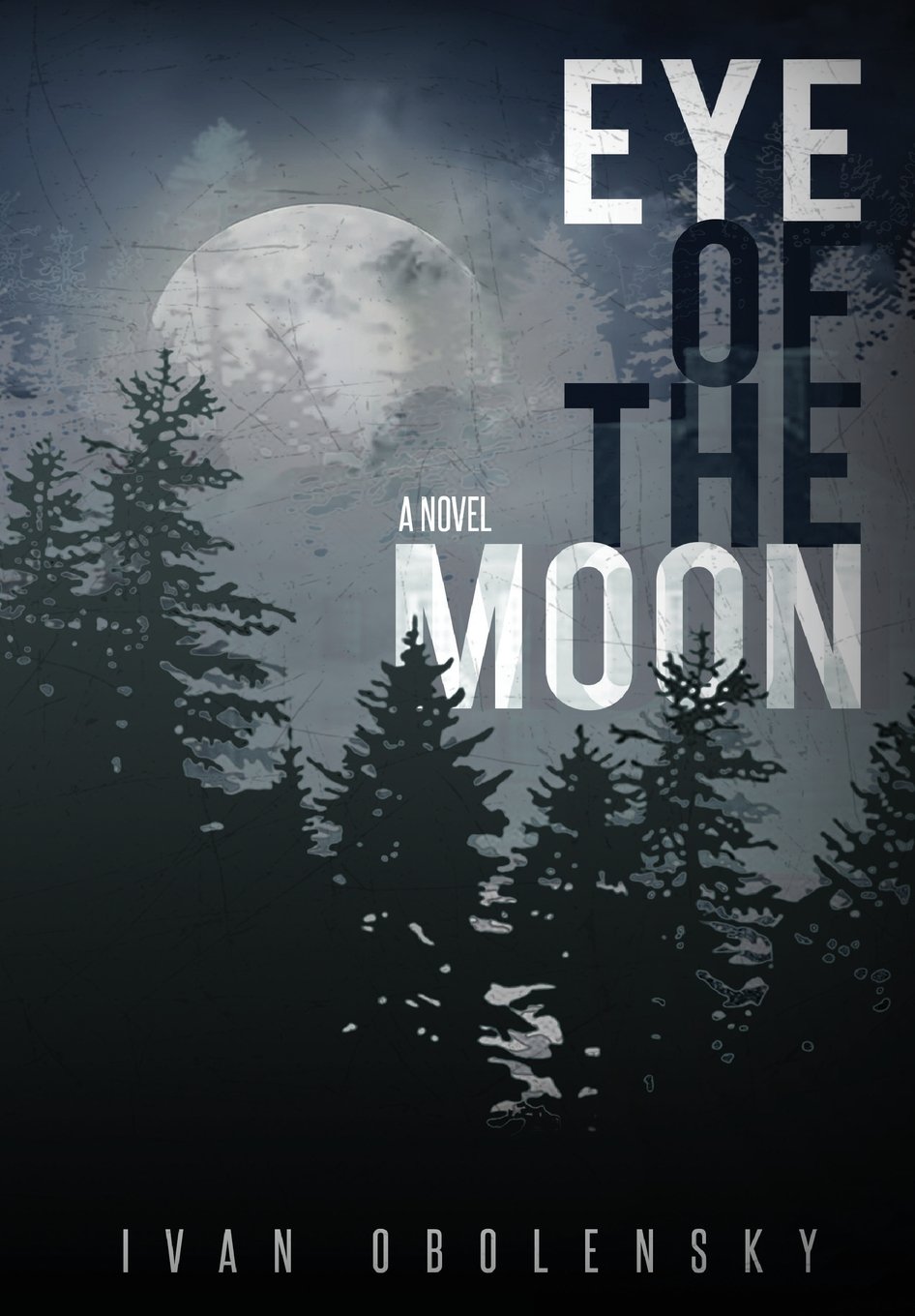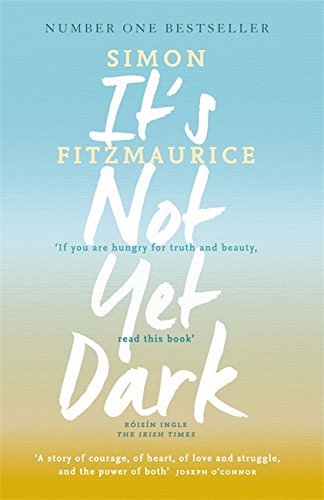 Writer, artist, filmmaker and photographer Brian Paul Bach talks about his Forward to Glory series, his characters, favourite scenes, on the nature of film adaptations, provides a full list of who he would like to play Butterbugs in a movie adaptation, the best part of his writing journey, and more.
Writer, artist, filmmaker and photographer Brian Paul Bach talks about his Forward to Glory series, his characters, favourite scenes, on the nature of film adaptations, provides a full list of who he would like to play Butterbugs in a movie adaptation, the best part of his writing journey, and more.
Author:
A review of Eye of the Moon by Ivan Obolensky
 The story line travelled along at a comfortable trot, characters make their introductions and the chapters were just the perfect length to hold my interest, and before I knew it, a couple of hundred of pages had quickly passed by. Was this The Great Gatsby meets Alistair Crowley? Wrong again. Eye of the Moon is a classic gothic tale flawlessly composed with the author’s persona that is evident on every page.
The story line travelled along at a comfortable trot, characters make their introductions and the chapters were just the perfect length to hold my interest, and before I knew it, a couple of hundred of pages had quickly passed by. Was this The Great Gatsby meets Alistair Crowley? Wrong again. Eye of the Moon is a classic gothic tale flawlessly composed with the author’s persona that is evident on every page.
An interview with Toni Stern
:format(jpeg):mode_rgb():quality(40)/discogs-images/A-657831-1418095977-8517.jpeg.jpg) Toni Stern enjoyed a highly productive collaboration with the singer-songwriter Carole King. Stern wrote the lyrics for several of King’s songs, most notably “It’s Too Late” for the album Tapestry. Here, with affection and insight, she examines the breadth and boundaries of family, place, language, and self, and talks about her new poetry book About As Close as I Can.
Toni Stern enjoyed a highly productive collaboration with the singer-songwriter Carole King. Stern wrote the lyrics for several of King’s songs, most notably “It’s Too Late” for the album Tapestry. Here, with affection and insight, she examines the breadth and boundaries of family, place, language, and self, and talks about her new poetry book About As Close as I Can.
A review of Appalachian Fall by Jennifer Maiden
 Anyone who thinks of poetry as a hermetic art form has not read Jennifer Maiden. A keen and articulate observer of current affairs and trends, Maiden’s work explores a political and sociological landscape through the lens of poetic vision. This analysis takes many forms, often in multi-genred pieces that transcend essay, fiction, biography and poetry. In spite of the mixed literary forms, there is a consistency in characters, themes, and in approaches across Maiden’s oeuvre that makes for an accumulative effect.
Anyone who thinks of poetry as a hermetic art form has not read Jennifer Maiden. A keen and articulate observer of current affairs and trends, Maiden’s work explores a political and sociological landscape through the lens of poetic vision. This analysis takes many forms, often in multi-genred pieces that transcend essay, fiction, biography and poetry. In spite of the mixed literary forms, there is a consistency in characters, themes, and in approaches across Maiden’s oeuvre that makes for an accumulative effect.
A review of This Far Isn’t Far Enough by Lynn Sloan
 Sloan’s characters are from various walks of life: an art dealer, a sculptor, a soldier, a convenience store clerk, a female prize fighter and several disillusioned mothers. Bullying, dishonest superiors, exploitative friends, devoted friends, women who love too much, and the darker side of parent-child relationships are examined in this collection
Sloan’s characters are from various walks of life: an art dealer, a sculptor, a soldier, a convenience store clerk, a female prize fighter and several disillusioned mothers. Bullying, dishonest superiors, exploitative friends, devoted friends, women who love too much, and the darker side of parent-child relationships are examined in this collection

We have a copy of Just Between Us by Rebecca Drake to giveaway.
To win, sign up for our Free Newsletter on the right hand side of the site and enter via the newsletter. Winner will be chosen by the first of February from subscribers who enter via the newsletter.
A review of Earthly Remains by Donna Leon
 Ranging from downtrodden pensioners to wealthy villa owners to ineptly corrupt bureaucrats, Leon’s secondary characters lead Brunetti through complex situations imbued with Italian history and passion, but often tainted by modern Italy’s ineffectual political system.
Ranging from downtrodden pensioners to wealthy villa owners to ineptly corrupt bureaucrats, Leon’s secondary characters lead Brunetti through complex situations imbued with Italian history and passion, but often tainted by modern Italy’s ineffectual political system.
Writing in Uncertain Times at The Wollongong Writers Festival
 The Writing In Uncertain Times event at The Wollongong Writers Festival featured an amazing panel of commissioning editor for PRH, Lex Hirst, rapper and poet Omar Musa, author and screenwriter, Amal Awad and debut novelist, Daniel Findlay. The event concluded to this year’s festival and author, reviewer and interviewer Samuel Elliot was there to cover it.
The Writing In Uncertain Times event at The Wollongong Writers Festival featured an amazing panel of commissioning editor for PRH, Lex Hirst, rapper and poet Omar Musa, author and screenwriter, Amal Awad and debut novelist, Daniel Findlay. The event concluded to this year’s festival and author, reviewer and interviewer Samuel Elliot was there to cover it.
A review of I Don’t Want to Know Anyone Too Well by Norman Levine
 Lives in these stories never turn out as expected, but they do have the accomplish, the finish, of a life that feels real; sometimes to the point of unbearable pain. Whether it be an old friend that the protagonist bumps into that he can’t connect with, or a father whom he wishes not to be similar to in anyway, for his lack of power, these characters resonate with the human flicker of reality; the chaos that lurks behind the ordinary lives of strangers.
Lives in these stories never turn out as expected, but they do have the accomplish, the finish, of a life that feels real; sometimes to the point of unbearable pain. Whether it be an old friend that the protagonist bumps into that he can’t connect with, or a father whom he wishes not to be similar to in anyway, for his lack of power, these characters resonate with the human flicker of reality; the chaos that lurks behind the ordinary lives of strangers.
The Sum of Our Parts: A review of It’s Not Yet Dark by Simon Fitzmaurice
 Fitzmaurice wrote with the sensibility of a filmmaker. He blends past recollections, present conditions and future possibilities in a moving kaleidoscope of connectivity regarding one’s influences, hopes and realities that seems always to be present instead of distant and reflective.
Fitzmaurice wrote with the sensibility of a filmmaker. He blends past recollections, present conditions and future possibilities in a moving kaleidoscope of connectivity regarding one’s influences, hopes and realities that seems always to be present instead of distant and reflective.